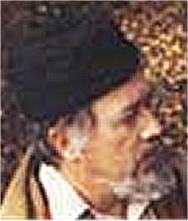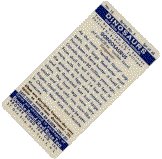|
|
|
|
Science, Art, and Conservation
|
The following is from a January 28, 2001 obituary of the New York Times on the Web By MICHAEL POLLAK:
 Don Richard Eckelberry, a prolific illustrator who was one of the country's
foremost bird painters, died Jan. 14 in Bay Shore, N.Y. He was 79 and lived in Babylon, N.Y. He died of respiratory failure after surgery, said his wife, Don Richard Eckelberry, a prolific illustrator who was one of the country's
foremost bird painters, died Jan. 14 in Bay Shore, N.Y. He was 79 and lived in Babylon, N.Y. He died of respiratory failure after surgery, said his wife,
Virginia.
Al Gilbert, past president of the Society of Animal Artists, said, "Don was probably in stature comparable to Roger Tory Peterson in the field of
wildlife art and bird painting."
As illustrator of Richard Pough's Audubon Bird Guide in 1946, Mr. Eckelberry portrayed virtually all the birds of North
America north of Mexico in all significant plumages, in 1,250 color pictures.
Dr. Durbin Rowland of the University of Chicago wrote of the first volume: "Each
bird seems to have sat or rather perched for a portrait rich in distinguished traits, right in stance, in coloring and even in feathered personality." Audubon, the
professor said, would have been thrilled.
Mr. Eckelberry's drawings and paintings are found in 14 books, including "An Introduction to Nature" by John
Kieran, "A Field Guide to the Birds of the West Indies," "A Guide to the Birds of Trinidad and Tobago," "Our Amazing Birds" by Robert S.
Lemmon, and the Audubon Western Bird Guide. He was a staff artist with the National Audubon Society in the 1940's but worked after that as a
freelance illustrator.
Les Line, editor in chief of Audubon magazine from 1966 to 1991, described Mr. Eckelberry's artwork, which he frequently published, as "fine art rather than
draftsmanship."
Mr. Line said Mr. Eckelberry bucked a growing trend in the 1970's and 80's in
which artists, working from photographs, put more and more detail into wildlife
painting, including detail one could not hope to see in the field, until the
painted birds ended up looking stuffed.
By contrast, he said, "Eckelberry's paintings really breathed life, and as they
really looked in nature a bird flying over the ocean with waves breaking or
flocks of skimmers lined up on shore."
Mr. Eckelberry was born and raised in Sebring, Ohio, and by the age of 15 had
formed a bird club, was writing nature columns for two newspapers and had had a
one-man show. He attended the Cleveland Institute of Art, where he met his
future wife, who was his freshman design instructor, and spent a summer as a
trailside naturalist for the Cleveland park system.
While working in a California optical company as part of the war effort, he went
on a desert bird-watching trip with John H. Baker, director of the National
Audubon Society, who promptly hired him.
Some of his early jobs for the society included being warden of wildlife
sanctuaries in Louisiana, where he traveled to check on the nearly extinct
ivory-billed woodpecker; Okeechobee, Fla.; and Cape May Point, N.J.
"Don was known as the consummate field man, making brilliant, lifelike sketches
of birds throughout North, Central and South America," said Robert M. Peck,
curator of art at the Academy of Natural Sciences in Philadelphia and a long
time friend of Mr. Eckelberry's.
"He was also a fabulous raconteur, creating eerily convincing sound effects and
affecting a wide range of accents as he wove captivating tales of his many
adventures in the field."
In 1967, Mr. Eckelberry and two other conservationists raised money to buy
Spring Hill Plantation, a thousand-acre estate in Trinidad well known to
ornithologists because of its nesting oilbirds and a wide variety of other
tropical species. They renamed it the Asa Wright Nature Center, after its former
owner, and it is now a nonprofit center for ecotourism and research.
Stats: Born in Sebring, Ohio in 1921. Deceased in 2001. Medium:
Oil and acrylic.
|

